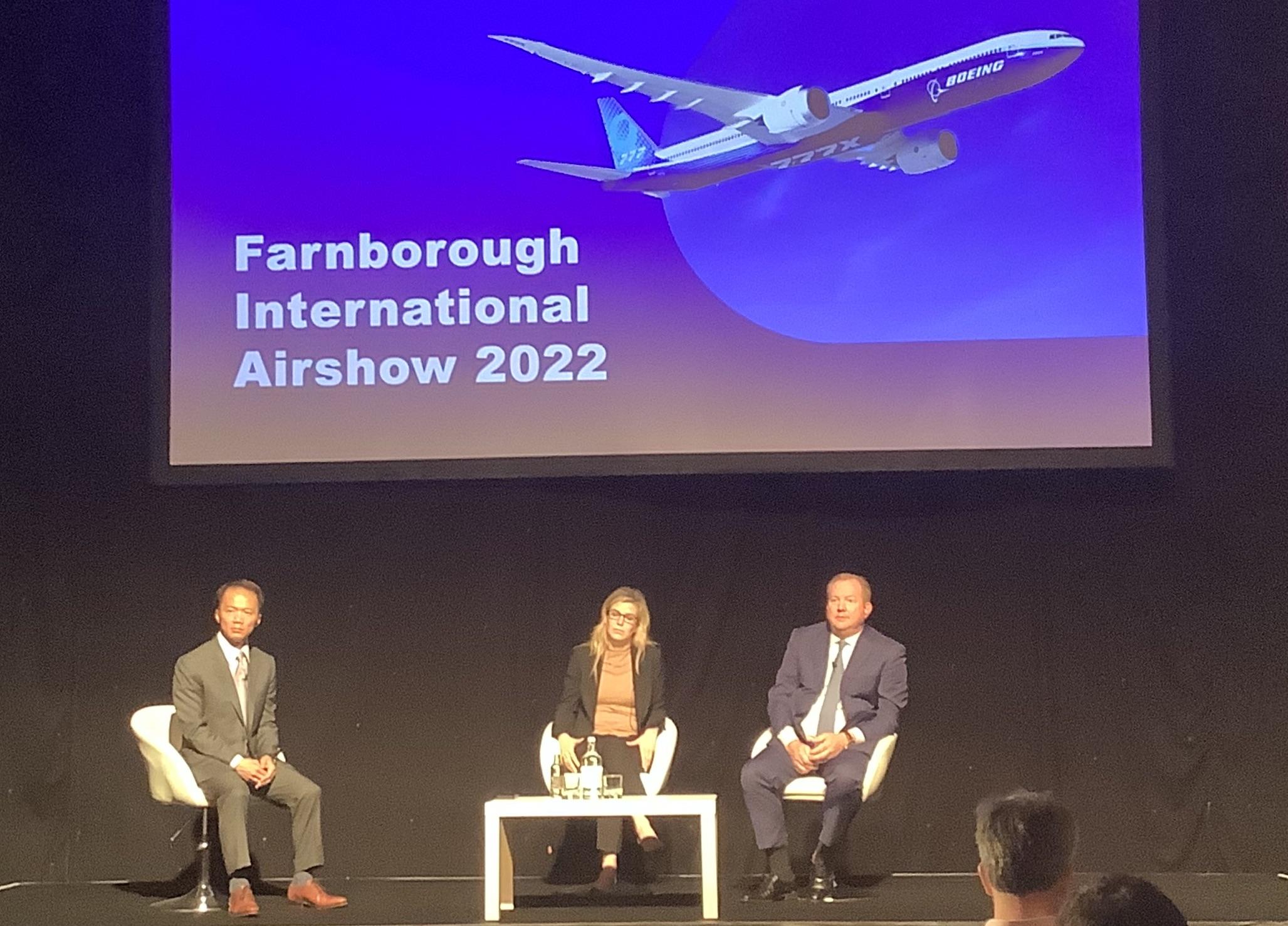
Boeing Commercial Airplanes President and CEO Stan Deal is optimistic about the order pipeline at this year’s Farnborough Airshow, although regulatory and supply chain challenges are still lingering.
“I think it's going to be a pretty robust show. That’s how I would characterize it,” Deal told media at a pre-show briefing in London on July 17. “Stay tuned for Monday, but I hope to get something every day of the week.”
Several questions remain unanswered, such as when Boeing 787 deliveries will resume and whether or not the 737-10 program will get certified this year or become subject to a cockpit redesign because of FAA requirements that come into force in 2023. He declined to comment on the potential impact on customers if the 737-10 program was dropped, saying the contractual terms for any program changes were confidential.
He said the next step for the 737-10 was getting FAA onboard, to meet a “sporting schedule” for the program.
Meanwhile, Boeing is “very close” to resuming 787 deliveries. “We are getting the aircraft ready, but we are not going to put a date out there,” Deal said.
He added there were likely pent-up orders for the 787, with airlines holding off on committing while deliveries are suspended.
A further hurdle for the US manufacturer is the post-COVID ramp-up, which has been impacted by shortages in labor, avionics chips and—partly because of Russian sanctions—materials. Engine supplies have also been a “big constraint.”
Boeing is aiming to produce 31 MAXs per month, but this rate was affected in March and April by supply chain problems. In July, 31 will be produced.
“We will be supply chain constrained for a while,” Deal said. “I’d say we’re at the middle of the journey.”
Deal said Boeing underestimated the willingness of some workers to return following the pandemic. “Labor left and didn’t come back,” he said.
Deal said Boeing was in no hurry to develop a new narrowbody, adding he was “quite content” with the company’s product strategy. Any new aircraft plans hang on digital tools being available, which will make program planning and delivery more accurate and cost-effective.
Instead, Deal’s main priority is production stability. “I've seen what lack of stability looks like. It cuts against quality and safety, so that's why stability is so important,” he said.
“We will always pace our production to the supply capability. We’re not going to build airplanes without engines. We're not going to build airplanes without major parts, and travel work down and then have to do rework. We've just decided as a company that is not a good strategy.”

